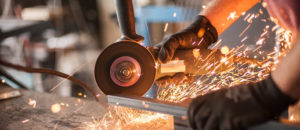 While being a Hollywood actor in California, an investment banker in New York, or an outdoor adventure guide in Colorado may top the list of America’s most coveted careers, we often overlook the jobs that people least aspire to.
While being a Hollywood actor in California, an investment banker in New York, or an outdoor adventure guide in Colorado may top the list of America’s most coveted careers, we often overlook the jobs that people least aspire to.
What are the professions that, despite offering financial stability, few would willingly choose? This is the question Tradesafe sought to answer as they aimed to identify the least desirable jobs across America, with a particular emphasis on job safety.
They posed a hypothetical question to 3,000 respondents:
Would you switch careers if your salary were doubled, even if it meant taking on a notoriously dangerous job?
The survey revealed some interesting results, which were broken down by state. Among North Carolinians, the job they would least be willing to do, even if offered double the salary, was that of a meatpacker.
#1 Meatpacker:
Meatpacking is one of the most hazardous jobs in North Carolina. While the industry provides essential services, meatpacking is often associated with high physical demands, long hours, and repetitive tasks in cold environments. The work is labor-intensive, and the risk of injury is significant, with workers facing potential hazards from sharp tools, heavy machinery, and exposure to harmful substances. Additionally, the psychological toll of working in such conditions, coupled with the monotony, contributes to the low appeal of this career.
Here are some of the other least desired careers among North Carolinians:
#2 Commercial Fisherman:
Fishermen face extreme weather conditions, the risk of drowning, and long hours at sea, often with minimal rest. The physical demands of the job, combined with the constant threat of life-threatening situations, make this a career many would avoid, even for double the pay.
#3 Roofer:
Roofing is a physically demanding job that involves working at heights, often in extreme weather conditions. The risk of falling and physical exhaustion makes roofing a challenging and dangerous occupation. Despite being essential to the construction industry, it’s a job that many are hesitant to pursue.
#4 Steel Worker:
Steelworkers are involved in constructing and maintaining buildings, bridges, and other large structures. The job often involves working at high elevations, handling heavy materials, and operating dangerous machinery. The risk of injury from falls, burns, and equipment accidents is high, making this a less-than-desirable career choice.
#5 Power Line Worker:
Power line workers maintain and repair electrical lines, often working high above the ground. The job is dangerous due to the risk of electrocution, falls, and exposure to harsh weather conditions. The physical demands and the ever-present danger make this a job that many would rather avoid.
#6 Oil Rig Worker:
Working on an oil rig involves long shifts, often in remote and harsh environments. The risk of accidents, such as explosions, falls, and equipment malfunctions, is high. The physical and mental toll of working in such an isolated and dangerous setting is significant, making this a career that few would choose willingly.
#7 Electrician:
While being an electrician can be a rewarding career, it comes with significant risks, including the danger of electrocution and burns. Electricians often work in cramped spaces, on ladders, and with high-voltage systems, making the job both physically demanding and hazardous.
#8 Logger:
Logging is one of the most dangerous occupations in America. Loggers work with heavy machinery and sharp tools in remote forested areas. The risk of injury from falling trees, equipment accidents, and the challenging terrain makes this a job that many would prefer to avoid, despite the potential for higher pay.


